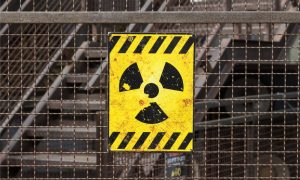
Citizens in Iran and across the Arab world are reeling from Israel’s rapid blows against Hezbollah, shattering years of propaganda. After being fed a constant stream of lies about Israel’s supposed decline, many are now struggling to cope with a stark and unexpected reality.
For years, Tehran and its proxies spun a web of fake news to prop up their own image and convince their followers that Israel was on the verge of collapse. Iranians are shocked by Israel’s battlefield success because the regime and its allies have spent years promoting fiction, said Iran expert Sharona Mazalian on X.
According to Mazalian, this PR machine has long invented stories of Israeli setbacks to reassure Iran’s supporters. This included wildly fabricated claims, like Israel’s main power station being hit or a fire advancing toward Netanyahu’s private residence. The message was clear: Israel was weak and crumbling.
Even as the current conflict unfolded, the lies continued – stories about Israeli tanks on fire and mass casualties flooded news channels and social media.
“The regime kept saying that Israel is nearing the end of the road,” Mazalian said in an interview with Reshet Bet radio. “Now, the false narrative they created blew up in their face. In their worst nightmares, they could not imagine the things that happened in the past 10 days.”
Hezbollah’s PR project
In Lebanon, too, Hezbollah regularly disseminates fake news to paint a misleading picture of Israel. The organization continued to follow this playbook in recent weeks, spreading falsehoods to mask its mounting losses, said researcher Yossi Manasharof on X.
Using friendly media outlets and social media channels, Hezbollah is promoting a narrative of victory. This includes baseless claims that Israel’s Defense Minister Yoav Gallant had been killed or that Mossad headquarters near Tel Aviv was hit in retaliatory strike.
Now, the elimination of Hezbollah leader Nasrallah and the organization’s entire military command have shocked Hezbollah supporters across the region.
Yet even in the aftermath of Nasrallah’s death, disinformation campaigns persist. An Iranian cleric recently claimed that Israel obtained detailed intel on Nasrallah from “invisible infidel demons” controlled by Jewish priests. Such far-fetched tales show just how detached from reality the regime’s propaganda has become.
As Iran’s regional strategy unravels, the credibility of its public relations efforts is crumbling, too. What was meant to rally supporters has backfired spectacularly. Israel’s undeniable military success has left many Iranians and Hezbollah supporters grappling with the truth they’ve long been shielded from.
At this point, Tehran may need to rethink not just its proxy war strategy but also its attempts to control the story. The lies that once bolstered the image of the Iranian regime are now leaving its followers disillusioned and shaken.


